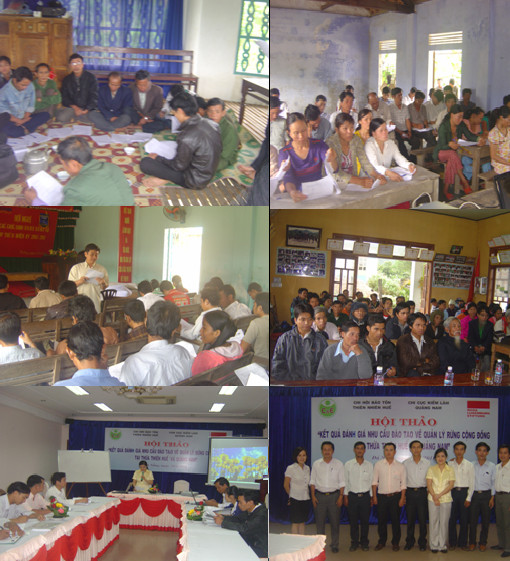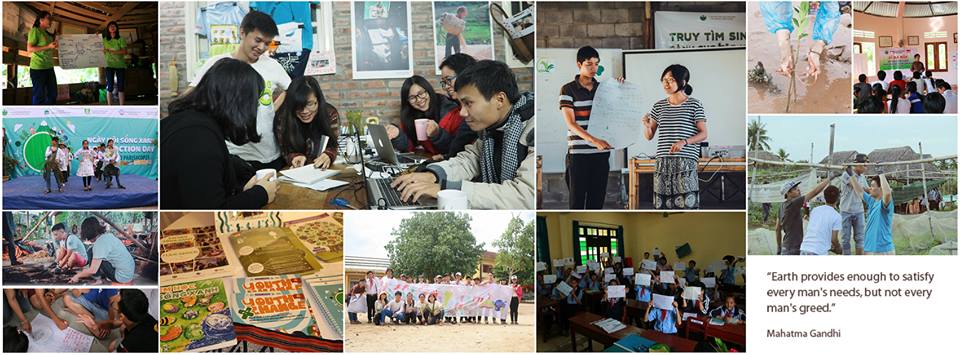Assessment of training needs for community-based forest management in Thua Thien Hue & Quang Nam: the right-based approach
The objectives of this survey are "Investigation and assessment of capacities and needs for community forest management of local community and authorities" in order to design training curricula and materials appropriate to the local needs and capacities.

The survey team conducted 304 questionnaire interviews with 304 people in the seven communes, where the majority of their population (70 %) are ethnic minorities such as Ko Tu, Van Kieu and Pa hy. Of the respondents, 49% live in poverty and 49% are at average, all relying on agriculture and forests. A majority of respondents have had either primary school or secondary school education. A difference between groups of respondents from Quang Nam and Thua Thien Hue lay in the proportion of ethnic minority respondents which are 98% in Quang Nam, higher than 45% in Thua Thien Hue.
Respondents consider forests to have high values for their life which include water and soil retention and provision of food and fuel sources. They are also aware of their roles not only as forest users but also protectors. The proportion of respondents who have been or used to be involved in forest protection activities is large but varies across communes with 65% being the lowest.
People from both provinces select nine of fourteen training contents which are: Concepts of community forest management: the right-based approach; People’s rights in management and use of land and forests which have been allocated to households and communities for management; Laws, regulations, and traditional customary laws on land and forest management; Skills in planning and organizing activities of a community forest management club/ group and in team work; Experiences and practical models of community forest management based on people`s rights; Developing and implementing conventions on forest protection and development; Methods for nursing seedlings, planting and caring some timber species of high economic values; Methods for nursing seedlings, planting, processing and preserving non-timber forest products; Methods for breeding some forest animal species. Of which the selection rate is 30% at the lowest. Over 40% of respondents from Thua Thien Hue choose contents: Mobilization of resources and mechanisms for sharing benefits from land and forest management and Enrichment of natural forests through sustainable livelihoods. Comparing Vietnamese language skills between surveyed groups in Thua Thien Hue and Quang Nam, 71% of respondents in Thua Thien Hue believe they are fluent in Vietnamese while the corresponding figure is 37% in Quang Nam.
The data collected in this survey will be used in the second phase of the project to design proper training courses that suit capacities and needs of local communities, through which to further empower the local ethnic minority communities in effective and sustainable use and protection of forests.
By Hoang Thanh Tam – C&E
